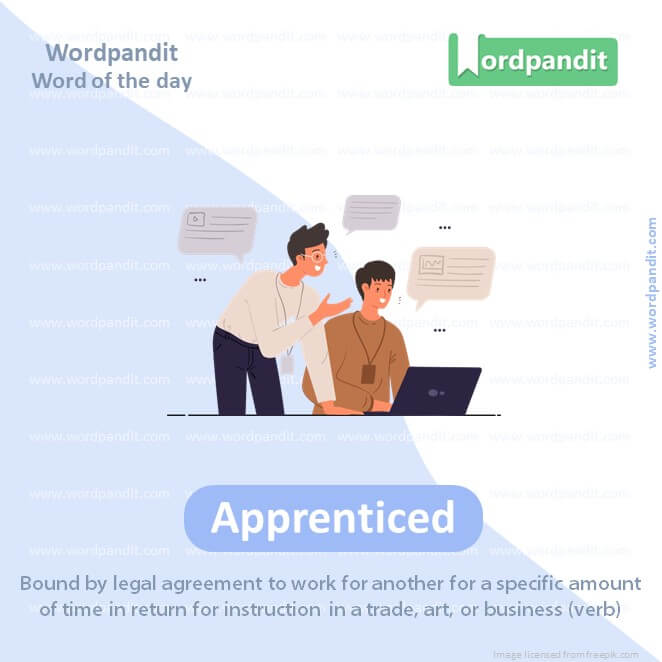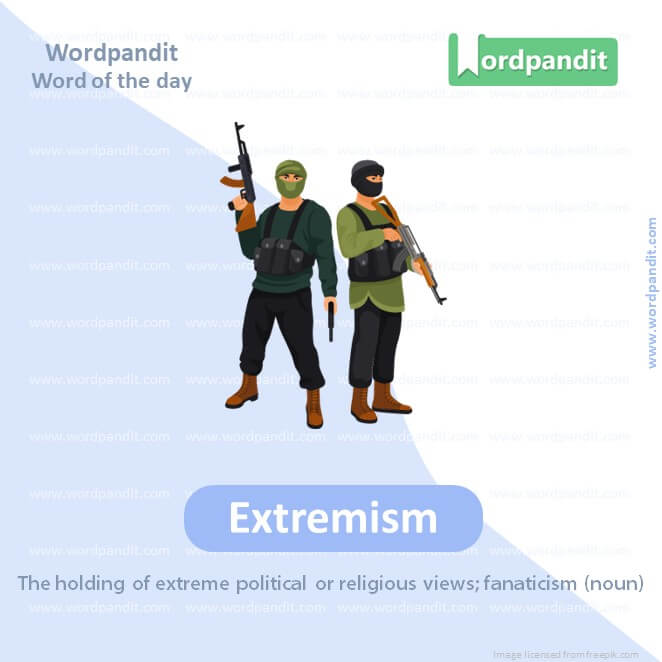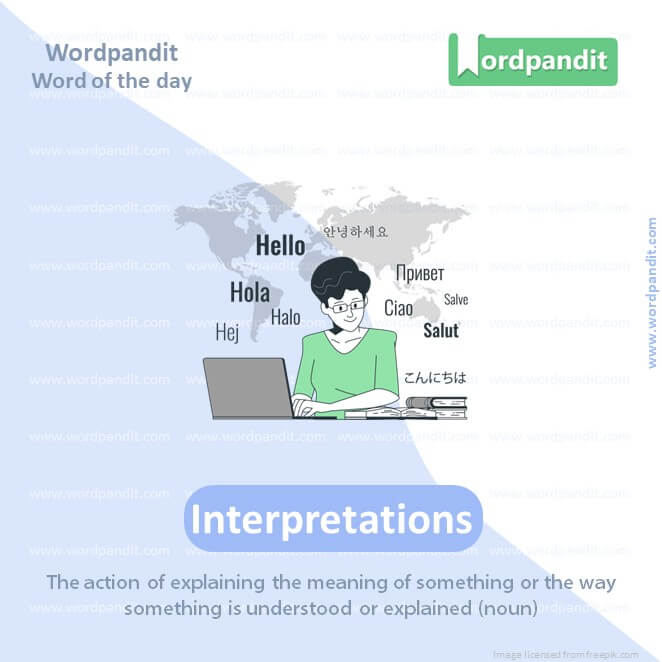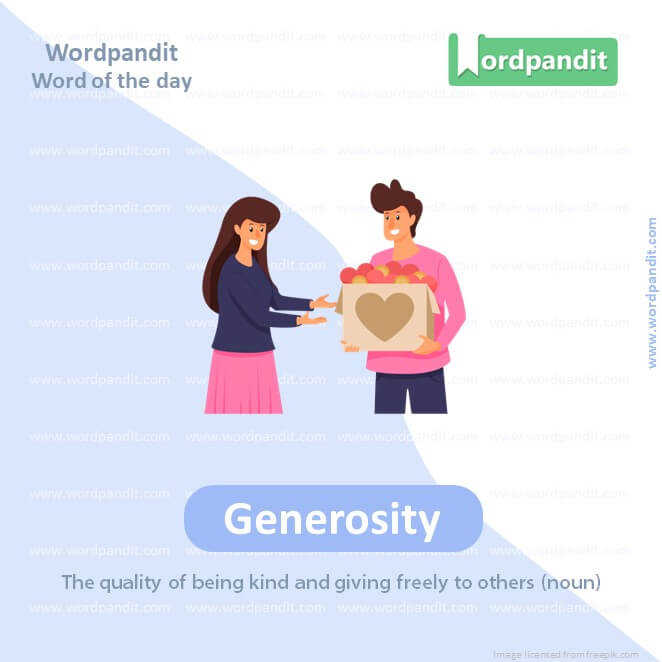Daily Vocabulary Words: List of Daily Used Words in Leading Indian Newspapers
Hi there. Welcome to this special section @ Wordpandit. Our endeavour here is straightforward: highlighting daily vocabulary words that you would come across in leading newspapers in the country. We have included the following newspapers in our selection:
• The Times of India
• The Economic Times
• Hindustan Times
• Mint
• Indian Express
We are putting in extensive work to develop your vocabulary. All you have to do is be regular with this section and check out this post daily. This is your repository of commonly used words; essentially, we are posting a list of daily used words. Hence, this has significant practical application as it teaches you words that are commonly used in leading publications mentioned above.
Visit the website daily to learn words from leading Indian newspapers.

WORD-1: Estranged
CONTEXT: It is important to understand that Bangladesh chose democracy, unlike its estranged twin Pakistan.
SOURCE: Indian express
EXPLANATORY PARAGRAPH: Estranged means being separated and no longer close or friendly with someone. It’s like when two friends have a big argument and decide not to talk to each other anymore.
MEANING: No longer close or affectionate to someone; alienated (adjective)
PRONUNCIATION: es-STRAYNJD
SYNONYMS: Alienated, distant, separated, disconnected, divided.
USAGE EXAMPLES:
1. He became estranged from his family after the dispute.
2. The estranged couple filed for divorce last year.
3. She felt estranged from her coworkers after the disagreement.
4. The siblings had been estranged for years due to misunderstandings.
WORD-2: Dimensionality
CONTEXT: He studied optics, and mastered shading and perspective: this dimensionality became the supreme innovation of Renaissance art.
SOURCE: Times of india
EXPLANATORY PARAGRAPH: Dimensionality refers to the different aspects or features of something. It’s like looking at a toy from all angles—top, bottom, sides—to understand all its parts.
MEANING: The quality or aspect of having dimensions (noun).
PRONUNCIATION: di-men-shuh-NAL-i-tee
SYNONYMS: Complexity, facets, aspects, depth, breadth.
USAGE EXAMPLES:
1. The dimensionality of the problem makes it difficult to solve.
2. They explored the dimensionality of the character in the novel.
3. The new theory adds greater dimensionality to our understanding of the universe.
4. Understanding the full dimensionality of social issues requires comprehensive study.

WORD-3: Apprenticed
CONTEXT: He apprenticed at a workshop, learning to sculpt bodies in motion, the folds of drapery, the harmonies of geometry.
SOURCE: Times of india
EXPLANATORY PARAGRAPH: Apprenticed means being trained by someone more experienced in a particular job or skill. It’s like learning how to bake cakes by helping in a bakery.
MEANING: Bound by legal agreement to work for another for a specific amount
of time in return for instruction in a trade, art, or business (verb).
PRONUNCIATION: uh-PREN-tist
SYNONYMS: Trained, indentured, learning, under instruction, in training.
USAGE EXAMPLES:
1. She apprenticed with a famous chef in Paris.
2. He was apprenticed to a carpenter at the age of sixteen.
3. Many of the best plumbers in the industry were apprenticed at young ages.
4. After being apprenticed for three years, she started her own business.
WORD-4: Vigorously
CONTEXT: the Opposition campaigned vigorously for a caretaker government, failing which it threatened to boycott the polls.
SOURCE: Indian express
EXPLANATORY PARAGRAPH: Vigorously means doing something with a lot of energy and force. It’s like running as fast as you can during a race.
MEANING: In a way that involves physical strength, effort, or energy; robustly
(adverb).
PRONUNCIATION: VIG-uh-rus-lee
SYNONYMS: Forcefully, energetically, robustly, strenuously, dynamically.
USAGE EXAMPLES:
1. She defended her argument vigorously.
2. The team played vigorously, securing the win.
3. He shook the can vigorously before opening it.
4. The law was vigorously enforced by the authorities.
WORD-5: Predatory
CONTEXT: She chose not to escape through the backdoor with Hanuman only to establish that a man must fight for a woman’s honour in such a demonstrable manner that predatory men would think twice before making women the spoils of war.
SOURCE: Indian express
EXPLANATORY PARAGRAPH: Predatory describes someone or something that hunts and preys on others. It’s like a big cat in the wild chasing after smaller animals for food.
MEANING: Seeking to exploit or oppress others; resembling or characteristic of a
predator (adjective).
PRONUNCIATION: PRED-uh-tor-ee
SYNONYMS: Exploitative, rapacious, aggressive, voracious, ravenous.
USAGE EXAMPLES:
1. The company was criticized for its predatory lending practices.
2. Predatory animals play a crucial role in the ecosystem.
3. He had a predatory instinct for business deals.
4. The lawyer warned against signing the contract with the predatory clause.

WORD-6: Extremism
CONTEXT: The outcome of this struggle now will impact society and polity, with the possibility of political unrest and the export of extremism, if society falls prey to religious fundamentalism and sponsors of terrorism.
SOURCE: Indian express
EXPLANATORY PARAGRAPH: Extremism involves very radical ideas or actions that are far from what most people consider normal or acceptable. It’s like someone believing or doing something way more extreme than everyone else.
MEANING: The holding of extreme political or religious views; fanaticism (noun).
PRONUNCIATION: eks-TREE-miz-um
SYNONYMS: Radicalism, fanaticism, zealotry, militancy, dogmatism.
USAGE EXAMPLES:
1. The government is taking measures to counter political extremism.
2. Extremism in any form can threaten societal harmony.
3. The community leaders spoke out against religious extremism.
4. His book explores the roots of extremism and its impact on society.
WORD-7: Circumscribe
CONTEXT: she detached herself from a society that wanted to circumscribe her within its rules and deny her equity as a woman.
SOURCE: Indian express
EXPLANATORY PARAGRAPH: Circumscribe means to limit something or restrict it within certain bounds. It’s like drawing a circle around a spot on a map and saying you can’t go outside that circle.
MEANING: Restrict something within limits (verb).
PRONUNCIATION: SIR-kum-skryb
SYNONYMS: Limit, restrict, confine, bound, encircle, delineate.
USAGE EXAMPLES:
1. The committee’s powers are circumscribed by the school board.
2. His authority was circumscribed by company policy.
3. We need to circumscribe how much time we spend on this project.
4. Legal constraints circumscribed their options.
WORD-8: Retelling
CONTEXT: The sacred feminine dominates, have reserved a more robust role for them in retelling the epic.
SOURCE: Indian express
EXPLANATORY PARAGRAPH: Retelling means telling a story or an event again, usually in your own words. It’s like when you watch a movie and then tell your friend what happened in it.
MEANING: The act of telling the same story or event again, often in a different way (noun).
PRONUNCIATION: ree-TEL-ing
SYNONYMS: Recounting, narrating, describing, relating, recapitulating.
USAGE EXAMPLES:
1. Each retelling of the story added a new detail.
2. The film is a retelling of a classic fairy tale.
3. She enjoyed the retelling of her grandfather’s adventures.
4. The novel is a creative retelling of historical events.

WORD-9: Interpretation
CONTEXT: it is this fluidity of interpretation that has layered their persona and made them more dynamic, complex and ever-evolving.
SOURCE: Indian express
EXPLANATORY PARAGRAPH: Interpretation is how someone understands or explains the meaning of something, like a piece of art, a book, or an event. It’s like looking at a cloud and deciding whether it looks more like a bunny or a car.
MEANING: The action of explaining the meaning of something or the way something is understood or explained (noun).
PRONUNCIATION: in-TUR-pruh-TAY-shun
SYNONYMS: Explanation, elucidation, rendition, representation, construal.
USAGE EXAMPLES:
1. His interpretation of the law was controversial.
2. The director’s interpretation of the play was modern and unexpected.
3. She offered her interpretation of the poem’s themes.
4. Different cultures have different interpretations of this ancient ritual.

WORD-10: Generosity
CONTEXT: She crossed the Lakshmanrekha, a man-made limit, only to display her generosity of spirit and bore the consequence of trusting everybody by her measure.
SOURCE: Indian express
EXPLANATORY PARAGRAPH: Generosity is when someone freely gives or shares things with others, like when you share your snacks or toys with friends.
MEANING: The quality of being kind and giving freely to others (noun).
PRONUNCIATION: jen-uh-ROS-i-tee
SYNONYMS: Kindness, largesse, magnanimity, benevolence, liberality, munificence.
USAGE EXAMPLES:
1. She is known for her generosity to charities.
2. His generosity was apparent when he donated the prize money to the school.
3. The festival is a time to celebrate generosity and giving.
4. They thanked him for his generosity in volunteering his time.
Vocabulary Hard Words
The experience of unraveling the depths of language learning often leads us to ‘vocabulary hard words’. These challenging jargons might seem daunting initially, but with the right learning strategies, the enigma of ‘vocabulary hard words’ can turn into an enticing quest. But how can these ‘vocabulary hard words’ be learned effectively?
Firstly, to master ‘vocabulary hard words’, it’s vital to break down the process into manageable steps. Instead of tackling several words at once, focus on understanding a few each day. This gradual approach ensures effective retention and understanding.
Multimedia resources tremendously aid in comprehending ‘vocabulary hard words’. Movies, podcasts, or even music in the target language contribute a comprehensive perspective. They provide real-life contexts and usages of ‘vocabulary hard words’, making them more understandable and less intimidating.
The incorporation of memory-enhancing techniques, such as flashcards or digital apps, can significantly bolster the retention of ‘vocabulary hard words’. Such tools encourage active recall, helping to cement these words into your long-term memory. Mnemonic devices can also aid in making these words more approachable by associating the hard words with relatable images or stories.
Practice is decisive when learning ‘vocabulary hard words’. Using these words in your conversations, written communications, or even social media posts will facilitate a robust understanding and recall.
Finally, do not worry about making mistakes while using ‘vocabulary hard words’. Mistakes are essential stepping stones in the learning process. They provide insights into areas that need more focus and help refine your grasp over these words.
In conclusion, grasping ‘vocabulary hard words’ is undoubtedly a challenging task but not an insurmountable one. With the aid of effective strategies including graded learning, multimedia resources, memory-enhancing tools, and regular practice, the process of mastering ‘vocabulary hard words’ can become an engaging and rewarding journey.










